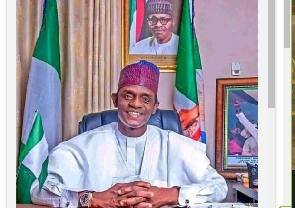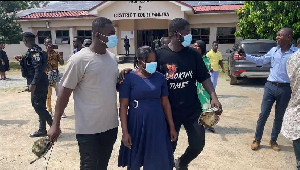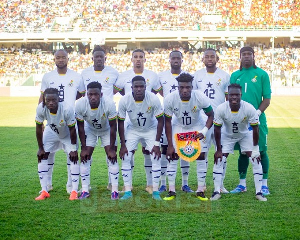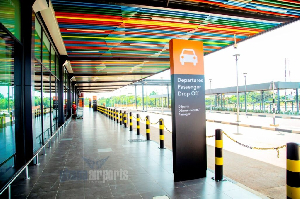Boko Haram fighters are suspected to have carried out a revenge attack over the weekend, targeting the convoy of a Nigerian governor of Yobe State, Mai Mala Buni.
The governor, who was returning from Maiduguri in Northeast Borno State to Damaturu, the state capital of Yobe, was lucky to escape the attack on Saturday.
However, some of his security details were not so lucky as undisclosed number were killed and six fatally injured.
Troops guarding the governor's convoy engaged in a shootout with the suspected terrorists, overpowering them and forcing them to retreat.
The attack came after troops backed with Nigeria Air Force (Naf) fighter jets on November 17 continued their interdiction on locations of the terrorists, in Sambisa Forest, killing more than 138 fighters.
At least 122 terrorists were arrested and 69 people held captive rescued by troops during the operation, which lasted for more than nine hours.
The ongoing counter insurgency and counter terrorism operations are geared towards making Nigeria safer as more and more terrorists relocated to Niger and Chad, according to the Director of the Defence Media Operations, Maj Gen Edward Buba.
Buba said the military was targeting commanders of Boko Haram and Islamic State West African Province (Iswap), extremists who attack Nigeria and communities sharing borders with the Niger, Chad and Cameroon.
He also said the ongoing counterinsurgency and counter terrorism operations across the country were yielding encouraging results.
“The terrorist and their cohorts will continue to suffer heavy casualties and it is in their best interest to surrender to avoid eventual destruction,” he said.
Nigeria's President Bola Tinubu has ordered the military to be more proactive and also called for the collective support of stakeholders to overcome the challenges of terrorism as well as restore peace and stability to the Northeast region.
Tinubu, speaking at a book launch event organised by Naf at Babcock University last week in Abuja, said the Northeast region has been grappling with the scourge of terrorism far too long.
He said that the brutal acts committed by extremist groups had inflicted immense sufferings upon innocent people of the region.
“Amid this darkness, there is hope. Hope that through knowledge, understanding and collective efforts of all stakeholders, we can overcome these challenges, and restore peace and stability to the region,” Tinubu said.
Tinubu further said that airpower had emerged as a critical component in modern warfare, and its significance in counter-terrorism operations could not be overstated.
He said that use of air assets such as drones, surveillance aircraft and precision weapons had proven instrumental in gathering intelligence, disrupting terrorist networks, and providing support to ground forces.
He also said that by fostering partnerships and deeper understanding of terrorism complexities, Nigeria could enhance collective efforts to address the threat comprehensively.
Boko Haram has been involved massive attacks on communities since 2009 with the intention of establishing Islamic States in Nigeria’s north states of Yobe, Adamawa and Borno.
Their fighters normally target churches and mosques, destroying social infrastructure including schools, markets, telecommunication equipment and farms.
Africa News of Tuesday, 21 November 2023
Source: theeastafrican.co.ke

















